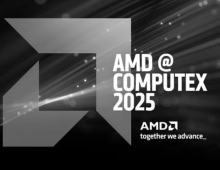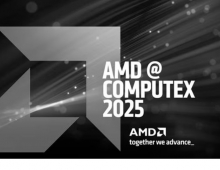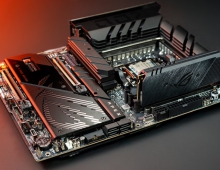
AMD changes CEO, Discontinues Cell Phone and Digital TV Chip Business
Yet after six years as AMD's CEO, Hector Ruiz stepped down Thursday as pressure mounts on the company to dig itself out of a deep financial hole.
Ruiz, 62, will remain on the board of directors. He's being replaced as CEO by AMD's current president and chief operating
officer, Dirk Meyer, 46, an engineer and chip designer who has been helping
Ruiz run the company since 2006.
"Dirk's election to CEO is the final phase of a two-year succession plan developed and implemented jointly by AMD's board of directors and executive team," said Robert Palmer, lead independent director. "Under Hector's strong leadership, AMD drove the industry adoption of pervasive 64-bit and multicore computing, became a trusted enterprise-class partner to leading technology suppliers and significantly expanded its global footprint in high-growth markets like China."
"AMD has fundamentally altered the industry landscape, leading the innovation agenda while delivering greater choice and better experiences for our customers and users," said Ruiz, executive chairman, AMD. "Dirk is a gifted leader who possesses the right skills and experience to continue driving AMD and the industry forward in new, compelling directions. I am placing the company in excellent hands."
Nearly all the world's personal computers and many of the servers inside corporate data centers run on chips made by AMD or its much larger rival, Intel. Intel commands 80 percent of the global market for microprocessors. AMD has roughly the other 20 percent.
The executive changeover came as AMD reported that it lost $1.19 billion in the second quarter, worse than the $600 million it lost in the same period a year ago.
The biggest damage to AMD's finances came from the divisions that make chips for cell phones and digital television sets. The businesses were absorbed as part of AMD's 2006 acquisition of graphics chip maker ATI Technologies, and they were both underperforming, forcing AMD to write down their value by $876 million.
AMD said it plans to sell the businesses and have classified them as discontinued operations in its financial results.
"Dirk's election to CEO is the final phase of a two-year succession plan developed and implemented jointly by AMD's board of directors and executive team," said Robert Palmer, lead independent director. "Under Hector's strong leadership, AMD drove the industry adoption of pervasive 64-bit and multicore computing, became a trusted enterprise-class partner to leading technology suppliers and significantly expanded its global footprint in high-growth markets like China."
"AMD has fundamentally altered the industry landscape, leading the innovation agenda while delivering greater choice and better experiences for our customers and users," said Ruiz, executive chairman, AMD. "Dirk is a gifted leader who possesses the right skills and experience to continue driving AMD and the industry forward in new, compelling directions. I am placing the company in excellent hands."
Nearly all the world's personal computers and many of the servers inside corporate data centers run on chips made by AMD or its much larger rival, Intel. Intel commands 80 percent of the global market for microprocessors. AMD has roughly the other 20 percent.
The executive changeover came as AMD reported that it lost $1.19 billion in the second quarter, worse than the $600 million it lost in the same period a year ago.
The biggest damage to AMD's finances came from the divisions that make chips for cell phones and digital television sets. The businesses were absorbed as part of AMD's 2006 acquisition of graphics chip maker ATI Technologies, and they were both underperforming, forcing AMD to write down their value by $876 million.
AMD said it plans to sell the businesses and have classified them as discontinued operations in its financial results.





















